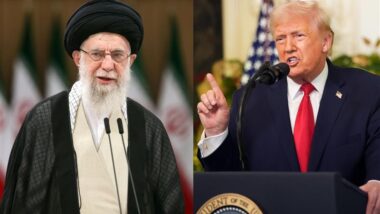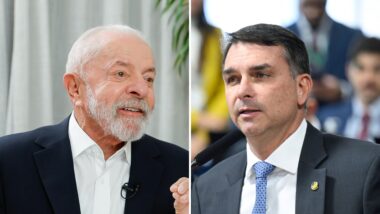
Ouça este conteúdo
Since 2019, Brazil's Supreme Court – Supremo Tribunal Federal (STF) – has launched several confidential inquiries allegedly aimed at probing 'fake news' and 'attacks' on its justices and democratic principles. These investigations are actually suppressing dissent and consolidating the judiciary's authority to serve simultaneously as prosecutor and judge in numerous cases.
This trend reached a new low when the Court suspended X (formerly Twitter) in Brazil, a move that places the country alongside repressive regimes like North Korea, China, and Iran—nations known for their undemocratic restrictions on freedom of speech and access to information.
Even some left-leaning opinion leaders, who are not subjected to the same persecution, acknowledge that these actions represent a significant threat to freedom of speech.
Journalists and media outlets challenging the Supreme Court's decisions face judicial persecution and censorship. Members of Congress are targeted in inquiries simply for voicing dissent against the Brazilian Supreme Court, with two already sentenced to prison. Additionally, several social media platforms have exited the country in response to pressures to censor content.
The disrespect for due legal process against right-wing citizens is also evident in the trials of January 8 protesters, who receive harsh sentences without proof of their involvement in violent or coup-related acts.
Recent reports from Folha de S.Paulo reveal that Justice Alexandre de Moraes set up an unofficial unit within the top ranks of Brazil's judiciary, turning it into an investigative arm under his control. This unit was directed by Moraes to produce and alter reports to support cases he himself was judging, allowing him to act as accuser, victim, and judge simultaneously.
The following guide outlines the array of threats to freedom of expression and the political persecution orchestrated by Brazil's judiciary.
Article 43 and the 'End-of-the-World Inquiry'
In March 2019, the Supreme Federal Court announced the opening of a secretive investigation to look into "fake news" and "attacks" against STF ministers—the "fake news inquiry", dubbed by critics as the "end-of-the-world inquiry."
- The Court justified this inquiry using an unconventional approach: it cited Article 43, an internal rule that permits the Court to initiate investigations in response to attacks on the physical integrity of its premises.
- Suddenly, the entire internet was considered a physical extension of the Supreme Court. With this maneuver, the tribunal brought into its fold cases related to criticisms of its ministers on social media, thus assuming the roles of judge, victim, and accuser simultaneously in these cases.
- Typically, cases involving offenses or defamation against the ministers should be handled by common courts.
- Five years on, the inquiry remains open, having spawned various other ongoing inquiries. Generally, such investigations should be brief.
- The inquiry does not specify a particular fact to investigate, a violation of the Constitution that allows its scope to be virtually unlimited. Additionally, it breaches the legal principle that requires a clear separation between the accuser and the judge.
- The reasons behind decisions in these inquiries are often kept confidential, preventing those involved from understanding why they are being investigated. Lawyers have complained for years about the lack of access to the full records of the cases, which have become a legal maze reminiscent of those found in dictatorial regimes.
Journalists and Media Outlets are Censored and Persecuted in Brazil
In April 2019, Moraes ordered the removal of a report by Crusoé magazine and O Antagonista website, under threat of a daily fine of R$ 100,000 (approx. USD 20,000). The report indicated that Justice Dias Toffoli was referenced by convicted businessman Marcelo Odebrecht during an investigation. This incident was the first in a series of censorship measures targeting media outlets, not just within the "end-of-the-world inquiry" but also in related investigations that followed.
- In 2020, Terça Livre channel, known for its strong criticism of STF justices, was banned from the internet in Brazil and included into the fake news inquiry. Soon after, journalist Allan dos Santos chose to self-exile to the United States to avoid potential judicial persecution. Following this, the Brazilian judiciary sought his extradition, but the U.S. authorities denied the request.
- Earlier that year, Justice Alexandre de Moraes had ordered the arrest of journalist Oswaldo Eustáquio as part of an investigation into "anti-democratic acts." This inquiry was launched in response to street protests by supporters of former President Jair Bolsonaro, which were deemed "anti-democratic."
- During the 2022 elections, after Moraes took over the presidency of the Electoral Court, even gentle and moderate questioning about the Brazilian electoral system, especially regarding electronic voting machines, was indiscriminately censored.
- One instance of electoral censorship targeted Gazeta do Povo, which had a post removed by the Superior Electoral Court. The post highlighted President Lula's support for Nicaraguan dictator Daniel Ortega, a fact that was labeled as "fake news."
- In October 2022, Brazil’s Superior Electoral Court (TSE) imposed prior censorship on Brasil Paralelo’s documentary "Quem mandou matar Jair Bolsonaro?", which explored theories about the 2018 stabbing of Bolsonaro. The court blocked its release and demonetized its YouTube channel without even reviewing the film. The censorship was requested by the Workers’ Party (PT). The documentary didn’t claim the attack was orchestrated by the PT, but Brasil Paralelo, known for its conservative audience, faced censorship nonetheless.
- The Electoral Court also acted on a request from Lula's campaign, initiating an investigation into the president of the Jovem Pan broadcasting network for alleged misuse of media. Jovem Pan, one of the few that provided a platform for commentators favorable to former President Jair Bolsonaro, altered its editorial policy following judicial pressure.
Right-Wing Congressmen in Brazil are Censored, Persecuted, and Imprisoned
In recent years, the Brazilian judiciary has also censored, persecuted, and imprisoned right-wing congressmen.
- At the beginning of 2021, Congressman Daniel Silveira was preemptively detained by order of Justice Alexandre de Moraes following a severe verbal critique of STF ministers in an online video, which was subsequently removed from the internet. The arrest and the video's removal were justified on the grounds that Silveira's actions were "attacks on the Democratic Rule of Law". Currently, Silveira is serving a sentence of eight years and nine months for the content of that video.
- In 2021, as part of the "digital militias inquiry" targeting alleged online attacks on the judiciary and democracy, the STF ordered the preventive detention of former congressman Roberto Jefferson, known for his critical stance against the Court. Jefferson was later placed on conditional release. However, following a new round of critical remarks against the Court, police arrived at his residence to detain him again. He responded by opening fire on the authorities, an action that led to his subsequent conviction.
- The inquiries have targeted numerous prominent right-wing politicians and congressmen in Brazil, including former President Jair Bolsonaro and figures such as Filipe Barros, Luiz Phillipe de Orleans e Bragança, Bia Kicis, and Carla Zambelli.
- Often, the politicians are not informed of the reasons for their inclusion in these inquiries.
- The judiciary has issued other rulings against congressmen that have raised concerns about political persecution. For example, former congressman Deltan Dallagnol, a key figure in the Operation Car Wash, had his mandate revoked through an unusual legal maneuver concerning an administrative matter.
Business People Speaking Out Against the Courts Are Persecuted
Business people who financially support right-wing demonstrations or who simply express criticism of the Court on social media and in private conversations are investigated by the judiciary.
- In 2020, wealthy business people who funded a right-wing protest were implicated in the so-called "monetization core" of an STF investigation, which targeted an alleged "anti-democratic" organization.
- In 2022, Justice Alexandre de Moraes authorized a police operation targeting businesspeople who discussed their concerns about Brazil's political climate in private WhatsApp conversations. Some participants were allegedly advocating for a military coup, though they had not devised any concrete plans. Prominent figures involved included Luciano Hang of Havan stores, Afrânio Barreira Filho from the Coco Bambu group, and Ivan Wrobel of W3 construction.
- In April 2024, Elon Musk, a South African businessman residing in the USA, was named as a suspect in the digital militias inquiry in Brazil.
Social Media Platforms Face Persecution; Some Flee Brazil Amid Rising Censorship
The Twitter Files Brazil revealed that the Brazilian judiciary has pressured social media companies with censorship demands and the threat of substantial fines. The response from companies has varied.
- Rumble exited Brazil in December 2023, protesting against censorship and government coercion. Prior to leaving, the video platform had complied with STF directives to remove certain content.
- In January 2024, the social network Locals announced its withdrawal from Brazil, citing pressures from the Court to take down some users and content.
- Telegram faced a suspension in Brazil in 2022 ordered by Justice Moraes but managed to overturn the STF's decision by meeting judicial requirements.
- Most recently, on August 30, 2024, the social media platform X (formerly Twitter) was suspended in Brazil. Its owner, Elon Musk, along with other legal representatives, are currently under investigation as part of Moraes' ongoing inquiries.
- The move places Brazil alongside repressive regimes like North Korea, China, and Iran—nations known for their undemocratic restrictions on freedom of speech and access to information.
Protesters Who Did Not Engage in Violence Are Sentenced to Over a Decade in Prison
Right-wing protests in Brasília on January 8, 2023, following Lula's election in 2022, resulted in violent acts, with protesters vandalizing public buildings. Moraes also leads an inquiry related to these acts.
Many of the individuals present at the protests did not engage in violent acts and were unaware that the demonstration would result in vandalism. Nonetheless, thousands of these individuals were preemptively arrested without respect for due legal process, and hundreds are being sentenced to more than ten years in prison.
- Cleriston Pereira da Cunha died in prison in November 2023 after a sudden illness related to a health issue. His death occurred three months after Cleriston obtained a favorable opinion from the Attorney General's Office for his provisional release. The document had not been reviewed by Moraes.
- Iraci Nagoshi, a 71-year-old housewife who believed the protest would be peaceful and did not participate in the violent acts, was sentenced to 14 years in prison by Moraes.
- A 38-year-old housekeeper and mother of two—a nine-year-old and a nineteen-year-old—was arrested while holding a rosary and a bible, shielding herself from tear gas during the January 8 events, without any proof of her involvement in violent acts. She was sentenced by Moraes to 17 years in prison.
- Dozens of individuals have already been sentenced, with many facing similar circumstances as described above. These sentences typically range from 12 to 17 years in prison.
- The Court claims that the protesters committed the crime of "violent abolition of the Democratic Rule of Law." Despite the vandalism of public buildings, none were armed, and there is no evidence that they had organized to overthrow the established power.
- The coup thesis also serves to build narratives used to persecute right-wing figures, as in the recent case of Filipe Martins, a former advisor to Bolsonaro, who has been imprisoned for nearly two months on allegations that he attempted to flee the country in December 2022. Martins is in jail for a trip that the Court hasn't proven he made.
Moraes Manipulated Judicial Reports to Target and Persecute Individuals
- In August 2024, Folha de S.Paulo reported that Justice Alexandre de Moraes established an unofficial unit within the top ranks of Brazil's judiciary. This unit, under his direction, was responsible for producing and modifying reports, effectively transforming it into a tool to investigate and support cases he personally oversaw.
- Moraes' actions blurred the lines between the roles of accuser, victim, and judge, as he used the reports generated by his unit to support decisions in cases where he was also presiding.
- The reports detail instances where Moraes' aides expressed frustration over delays in fulfilling his orders, highlighting the intense pressure placed on the court staff to comply with directives that were outside standard judicial procedures.
- Justice Alexandre de Moraes went as far as selecting specific targets for investigation, even highlighting social media posts of individuals he wanted to be pursued. He provided detailed instructions on how the accusation reports should be crafted, reports that he himself would later judge.



